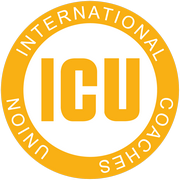Code of Ethics
To protect both clients and coaches, ICU has established a Code of Ethics. It defines how we practice—with integrity, professionalism, and respect at the core.
The goal of the coach will always be to support the personal and psychological development and well-being of the client.
This comes before any personal interests the coach might have.
This comes before any personal interests the coach might have.
The coach shall be honest about their qualifications, experience, and limitations, and shall not make false claims about results or outcomes.
The coach shall uphold the reputation of the coaching profession by acting with integrity, professionalism, and social responsibility in all interactions.
The coach shall treat every client with respect and dignity, embracing inclusivity and refraining from discrimination based on race, gender, age, religion, disability, or any other characteristic.
The coach shall maintain clear and appropriate professional boundaries at all times, avoiding conflicts of interest and refraining from exploiting the relationship in any form (financial, emotional, or otherwise). Additionally, the coach must refrain from entering into any sexual or romantic relationship with the client during their coaching engagement.
The coach is required to maintain strict confidentiality regarding all the information shared during coaching sessions. A client’s personal information can be disclosed to a third party only with the client’s explicit consent, except for the cases where nondisclosure could endanger the client, the coach, or others.
The coach must keep any written materials about the client in a secure location to prevent unauthorized access by third parties.
The coach is obliged to show these materials per the client’s request.
The coach is obliged to show these materials per the client’s request.
If the coach wishes to record a session for self-reflection or supervision purposes, the coach must obtain the client’s explicit written consent. The supervisor or any other third party must confirm the client’s consent before reviewing the recording.
If a coach is unable to continue the coaching engagement—whether due to limitations in competence or personal circumstances—the coach must act in the client’s best interest by referring them to another qualified professional.
A coach is expected to actively pursue ongoing personal and professional development—through continued education, participation in peer groups and professional associations, engaging in regular self-coaching, and receiving supervision for their client work.
